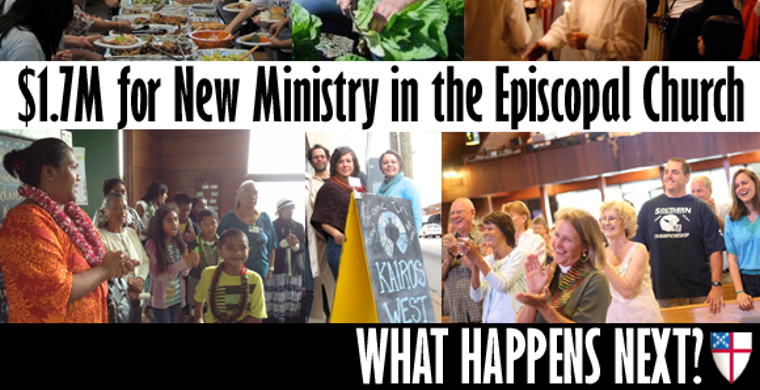The Missionary Budget of the Episcopal Church
By Michael Heidt in Salt Lake City
VOL Special Correspondent
www.virtueonline.org
July 3, 2015
The Episcopal Church approved a $122.2 million budget at its General Convention, which met in Salt Lake City this year. Prepared by the Church's Program, Budget and Finance Committee (PB&F), the denomination hopes the proposed expenditures will boost the declining denomination's missionary efforts.
According to PB&F committee chair, Rev. Mally Lloyd of Massachusetts, and vice chair Bishop Steven Lane of Maine, the proposed budget is "all about mission." Writing in the budget's preface, they state:
"We believe that all elements of the budget, including governance and administration, are about mission and mutual relationships: how we relate to those not currently members of our communities, to those in need both spiritually and materially, to those suffering from injustice and unjust structures, and to the care of the fragile earth, our island home."
More specifically, the budget is structured around the 5 Marks of Mission, which are: To proclaim the Good News of the Kingdom; to teach, baptize and nurture new believers; to respond to human need by loving service; to seek to transform unjust structures of society, and to strive to safeguard the integrity of creation and sustain and renew the life of the earth.
Proclaiming the Good News of the Kingdom gets the bulk of the missionary share, with a proposed hefty $18,825,717. Teach, baptize and nurture is allocated, $3,746,504, $7,838,839 is earmarked for human needs and loving service, while changing unjust structures costs $6,685,749. And, unfortunately for our fragile island home, the earth, safeguarding creation gets a mere $650,000. Governance and administration make up the rest, or 42% of the total.
Several new fiscal initiatives stand out. $3 million is set aside for church planting and another $2 million is dedicated to ending racial injustice. "Give them $2 million and a blank slate to really try something new for the church that we hope will have major impact," said Rev. Mally Lloyd, PB&F chair.
To help pay for this, the amount of money the national Church asks its member dioceses to give is being reduced from 19% to 15% over three years. Out of a total 109 dioceses, only 49 dioceses paid their full asking of 19% or more. This figure is expected to fall to 15%, while dioceses paying less than that are expected to meet the percentile target incrementally. The Church's "asking," or the tax it levies on dioceses will become a mandatory 19% in 2019.
However, only 61% of the proposed budget's income, or $76.6 million, comes from diocesan contributions. 23% of the shortfall is made up by drawing down 5% from the Episcopal Church's unrestricted assets. This has prompted some commentators to claim that the Episcopal Church is living off of previous generation's generosity.
Bishop James Mathes of San Diego criticized the draw on the church's endowment funds, saying that this was a sign of ill-health.
"I think it is our responsibility to note that, with a lesser and lesser percentage of the Episcopal Church's budget being paid by assessment, we are living more and more on the generosity of the past, thus the church is increasingly spending money that its members have not donated," said Mathes.
"I think we just need to call that out," Mathes said, "When we see that in congregations, that's a sign of less and less health."
Rather than bring attention to the fact that the Episcopal Church relies on endowments to fund its mission initiatives, the PB&F committee left the information in the form of a pie chart. Referring to the infographic, Mally Lloyd said "people can draw their own conclusions."
According to the denomination's most recent statistics, the Episcopal Church lost a quarter of its worshipping attendance between 2003 and 2013, some 200,000 people.
Perhaps $3 million spent on church planting, out of a total expenditure of over $120 million, will turn that around.
Michael Heidt is Editor of Forward in Christ magazine and a priest in the Diocese of Fort Worth














